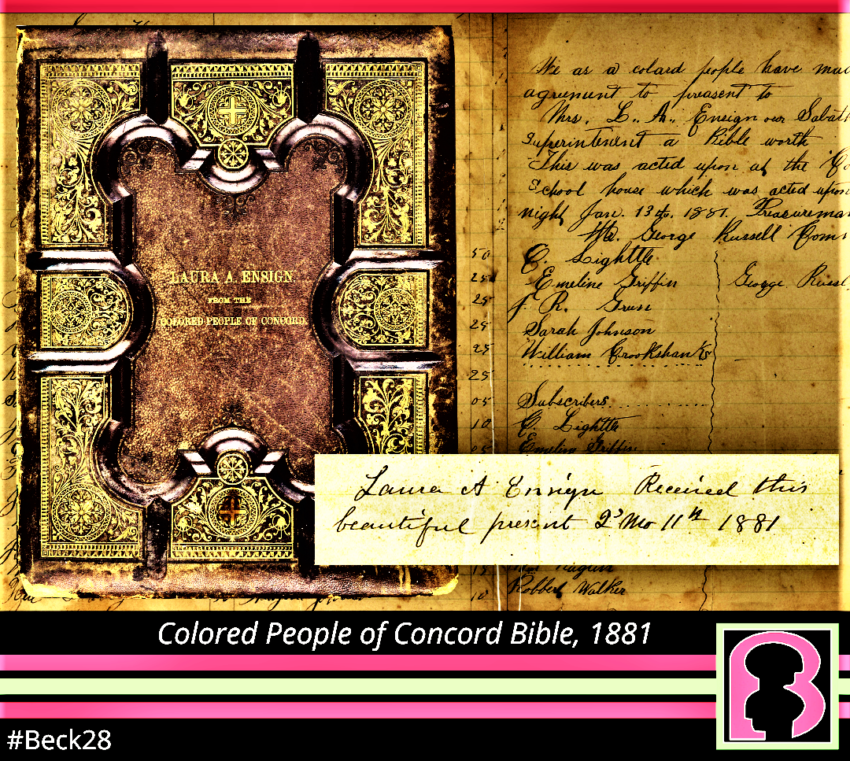Submitted by, Beck Cultural Exchange Center
February 13, 2022
The opening pages of a presentation or ceremonial bible have pages reserved to record the recipient’s immediate family tree and from where they hailed. Priceless information to tracing one’s ancestry.
A Presentation Bible was once a traditional gift for momentous occasions such as marriage and the birth of a child. The opening pages were reserved to record vital ancestral information such as the names of family members, marriages, birth and death dates as well as christenings and baptisms. Before the 20th century, African American births were not officially recorded or validated with a birth certificate. A recorded Bible was the only documentation of many significant events in the lives of slaves and freedmen and is an invaluable genealogy resource.
In Concord, Tennessee in 1881, Black Sunday School students wanted to honor their teacher for her years of service to the community by gifting her an illustrated Bible. The dedication included a list of residents in Concord’s Black community, who donated money to purchase the Bible. This donation is an incredible genealogical resource of African-Americans thriving in the West Knox County of Concord just 16 years after Emancipation in 1865. A letter with the gift Bible read:
“We as colored people have made an agreement to present to Mrs. L. A. Ensign our Sabbath School Superintendent a Bible. This was acted upon at the Colored School house on Thursday night, January 13th, 1881.”
This priceless artifact, which includes genealogical information for many families, was donated to Beck Cultural Exchange Center in 2021 by Lee Ensign, a descendant of Laura A. Ensign.
The Beck Center’s collection continues to grow and your donations are much appreciated. The support of contributing donors, members, sponsors and volunteers, the Beck collection numbers over 50,000 artifacts of local Black history and culture. Please consider donating artifacts of your relatives, friends and of erased communities to Beck Cultural Center where they will be protected in perpetuity and shared with present and future generations.
The historical fight for recognition of Black innovation, achievement, and experience began as “Negro History Week” from the efforts of Carter G. Woodson, a Black historian, scholar, educator, and publisher. After 50 years the week became Black History Month. February was chosen to coincide with two important birthdays; Frederick Douglass and Abraham Lincoln.
 In honor of Black History Month, Beck will share an artifact from its collection to illuminate the Black experience, culture and contributions to East Tennessee. For more information visit, beckcenter.org; call 865-524-8461; or email BeckCenter@BeckCenter.net.
In honor of Black History Month, Beck will share an artifact from its collection to illuminate the Black experience, culture and contributions to East Tennessee. For more information visit, beckcenter.org; call 865-524-8461; or email BeckCenter@BeckCenter.net.

